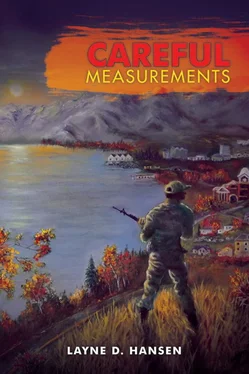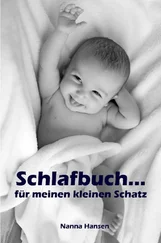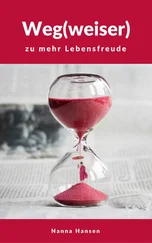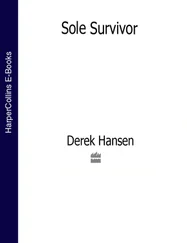Patton thought back to that crucial moment of his life when he was about to, once again, sink into the abyss of depression and alcoholism and possibly another suicide attempt. It was then that he’d seen the email advertising this crazy experiment. At first it had seemed like another email—something he’d normally delete. However, it quickly became his last hope of creating any type of life for himself.
The email read:
“A group of prominent social scientists is planning a social experiment. It is designed to show how a society will develop if every person begins with equal opportunities and economic status. The people chosen for this experiment will reflect the current demographics of the United States’ most recent census. A sample of nearly 32,000 people will be chosen, which represents approximately a hundredth of a percent of the population of the United States.
“Individual applications to this email will be entered into a large database. An algorithm will randomly select the combination of respondents that best represents the country’s political, social, ethnic, and economic dynamics. If you are interested in participating in this experiment, please log onto www.microcosm.org. More information and details are available at this site.”
It was during another long, sleepless night that Patton clicked on the link and entered his information. The survey proved to be a very detailed. It asked for some basic demographic information, but also some very personal questions about his life and his beliefs. When he finished with the survey, Patton was notified that he would have to sign a contract. Once the contract was signed, he would be bound to complete the experiment—the timeframe was unknown. If he failed to live up to the contract, he would have to pay a penalty of five hundred thousand dollars—this in order deter participants from leaving the experiment and skewing the results.
Patton learned that each individual or family group would be given an equal amount of money, or “economic credits” as they were called. They would be free to spend those credits however they pleased. They could indulge themselves with luxuries or they could invest in a business or professional practice. Participants could go about it alone or could merge their credits with other individuals or groups to create more buying power. No personal wealth could be brought in from the outside.
The experiment would essentially give the subjects total political and economic freedom. No government would be established by the organizers. In order to get the federal grant money, the federal government required there be essential services like police, fire, water, and sanitation services. The organizers agreed to provide these services until participants would take over. Luckily all of these services would be provided by participants.
The expressed purpose of the experiment was to place everyone on equal economic and social footing. Researchers would then observe events as they played out. The money would be the control mechanism in the experiment. No longer could people complain that they’d had an unfair disadvantage—people would either sink or swim by their own abilities and decisions, or lack thereof. As far as Patton could tell, the organizers did not give suggestions on how. They would let people choose for themselves what to do with their credits.
Once the experiment began, participants could leave for only up to four weeks at a time and could only do that three times per year. Family and friends from outside could come and visit, but for only one week at a time, three times per year. While these conditions seemed harsh to Patton, it did make sense. Obviously, the organizers felt that if participants spent too much time away the experiment would suffer because conditions would not reflect reality. Individual members of a family group could leave permanently, but at least one member of the family had to remain until the end of the experiment or pay the financial penalty.
Once participants were selected, they received access to an online catalog from which they would select their housing, transportation, and business, among several other details. At this time they could contact other participants to merge economic credits and build corporations. Once all of the participants made their selections, the process of building of the town began. The building of roads, housing, and businesses took over a year. Now that the town was complete, people from all over the country were now making their way to the Pocatello valley, which straddled the border between Utah and Idaho.
Researchers scoured the continental United States for the ideal landscape. They wanted an area that experienced all four seasons and had a diverse landscape within a relatively small geographical area. Also, the spot had to have a very small existing population, which would make it easier and cheaper to buy their property and move them out. Many parts of the country were considered, but the Rocky Mountain region was ultimately selected. Professional location scouts from the film industry were hired and sent to Colorado, Utah, Idaho, Montana, and Wyoming. After weeks of searching, the Pocatello Valley, located just north of the Great Salt Lake, was found to be the perfect spot. It was chosen for its isolation, its versatility, and its fertility, which made it both beautiful and ideal for farming.
A small lake was dredged, deepened, and expanded. It would serve as the southern border of the main part of town. The surrounding hills, once barren and covered with scrub grasses and sagebrush, were planted with trees and wildflowers. A city center was surveyed and residential, commercial, and industrial plots were laid out. Building lots outside of town, up along the low hillsides, could also be selected. Patton picked a plot in the eastern hills, just above the lake.
Patton was simultaneously excited and frightened when he was notified about his selection. It would be difficult to tell his mother. Worse, however, was the sense that he was leaving his family behind forever. The thought of not visiting their graves was almost unbearable, but he had the feeling he was supposed to do this—that somehow it was his destiny to be involved.
Now tired from reliving those recent memories, Patton leaned his seat back, put on his headphones, clicked play on his iPod, and prayed for sleep.
The train descended into Reno, Nevada at dawn. Daylight broke brilliantly over the Great Basin. The sun muted the city’s lights and street traffic, which usually bustled into the early morning hours. There were few cars on the streets. A small number of pedestrians were braving the chilly early morning air. The train began to brake and a sudden lurch woke Patton. He rubbed his eyes, yawned, and looked at his watch. It was just after 6 A.M. He’d wanted to sleep longer but all passengers had to leave the train so that others could be brought aboard. His stomach growled. He would need coffee and breakfast before exiting the train.
Patton showered and dressed and then made his way up to the dining car. He tapped the bar to get the barista’s attention and ordered a large latte. While waiting for his drink, Patton looked around the car. It was slowly filling with more tired-looking passengers. His gaze finally rested on a tall and athletic-looking blond woman, who was leaning casually against the far wall. She was talking mutedly on her cell phone. The woman turned towards him and their eyes met. He turned away, embarrassed, pretending that he hadn’t been staring.
“So you’re doing this crazy experiment, huh?” the barista asked him, setting down a napkin and then his coffee. She was young, maybe in her late teens or early twenties, and was probably just as bored as he was.
Читать дальше













